
A life well-lived is a tapestry woven with threads of love, purpose, and growth. Discover the secrets to a vibrant, purpose-filled life as Gail Zugerman sits down with filmmaker and author Sky Bergman. Sky, known for her PBS documentary Lives Well Lived and book Lives Well Lived – Generations, shares how her grandmother’s inspiring example led her to interview over 40 elders, uncovering profound insights about living a fulfilling life. She highlights key themes of her work: the importance of maintaining a sense of purpose, nurturing supportive relationships, and cultivating a resilient mindset. Unleash the power of optimism and connection as we explore how thriving in later life can inspire future generations.
—
Watch the episode here
Listen to the podcast here
Passing The Torch: Lives Well Lived – A Legacy of Hope With Sky Bergman
My guest is Sky Bergman, a professor emeritus of Photography and Video at Cal Poly, at San Luis Obispo. Sky’s third act after a 30-year teaching career includes hanging artwork and prestigious museum collections and having her commercial work appear in the Smithsonian Magazine. Her most recent passions involved creating films and projects that inspire intergenerational connections, which emphasize the power of sharing stories, which I know that I love. Her first book we talked about on an earlier podcast, Lives Well Lived, was followed by a successful PBS documentary. This led to her second book called Lives Well Lived — GENERATIONS. This book takes the wisdom from the film and celebrates all of life’s essences across generations. I’ve read her book, it’s fascinating and there’s so much to talk about. Let’s get started. Welcome to the show.
Thank you so much for having me. Just to clarify, Lives Well Lived is the first film I ever did. Lives Well Lived — GENERATIONS is the first book that I’ve ever written. It’s a companion to the film.
Lives Well Lived
Can you give our readers a little bit of background on how you came up with Lives Well Lived? What prompted you to make the film and now the book and on and on? I think it’s your brand.
I think it has become my brand. I was lucky enough to have an incredible role model of aging in my own family, which was my grandmother who I was looking at approaching 50 and I’m 58, this was about many years ago when I was looking at that half-century mark, and thinking, “What is the rest of my life going to look like?” Anything I was seeing in the media were all the negative things about aging like, “How to stay youthful? How to use anti-aging creams to stay youthful and get rid of your lines?” That’s not what I wanted. I wanted to have those positive role models of aging. In my own life, I had my grandmother, who was an amazing role model who didn’t start working out at the gym until she was 80.
It’s proving that it is never too late to start something new, even going to the gym. I think that one of the things that I was looking for was, “Who else is out there like my grandmother?” I spent 4 years interviewing 40 people who were 75 plus with a collective life experience of 3000 years. That set me off in a completely different career path. I’d never done a film before. Here I became a filmmaker to get the word out and created the Lives Well Lived PBS stock. I’m super excited because PBS extended our contract for another four years.
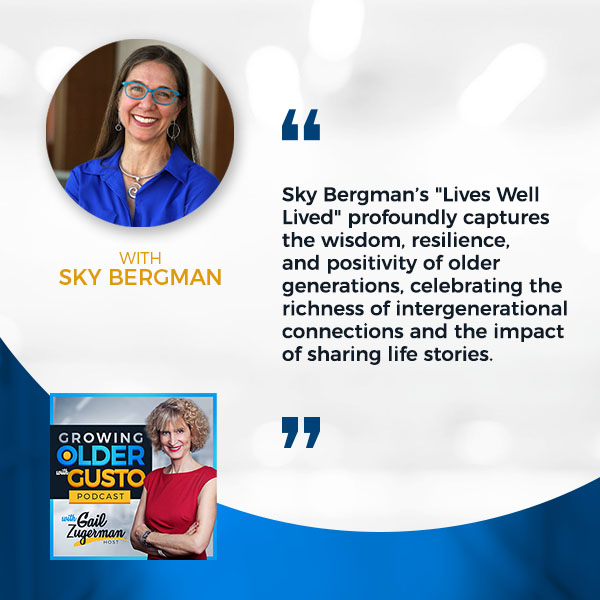
Tell us a little bit about your takeaways from the people you did interview for the film.
There were three common elements. Let me say that I’m not a social scientist. I am an artist. I was doing this as a very personal project, I wasn’t looking at everyone over 75. I was looking for the positive role models that I could find of aging. I think that the three main key takeaways were that everyone in the film had an incredible sense of purpose and that could change over time. I think that one of the things that we find is that when people in quotes retire from their day jobs, they don’t know how to define themselves. I think part of that is not having that sense of purpose.
The loss of identity particularly.
That loss of identity at that moment. I also see that lack of sense of purpose in some of my college students when they realize, “I’m in the wrong major. I don’t know what I’m doing.” They feel like they’re not grounded. We all need to have a sense of purpose and that can change at different points in our lives.
I think that learning to be flexible about what our sense of purpose is and our drive is, and all the people in the film had something that they looked forward to getting up to do every day, whether it was learning something new or giving back in some way, that was their sense of purpose. The other thing was having a good support system. That could be family or friends. There are these studies that have come out recently. The Surgeon General has said that loneliness is far more damaging to our health than even smoking cigarettes. They were looking at how long our lifespans are.
Exercising is an important diet, but it’s the social connections that are most important.
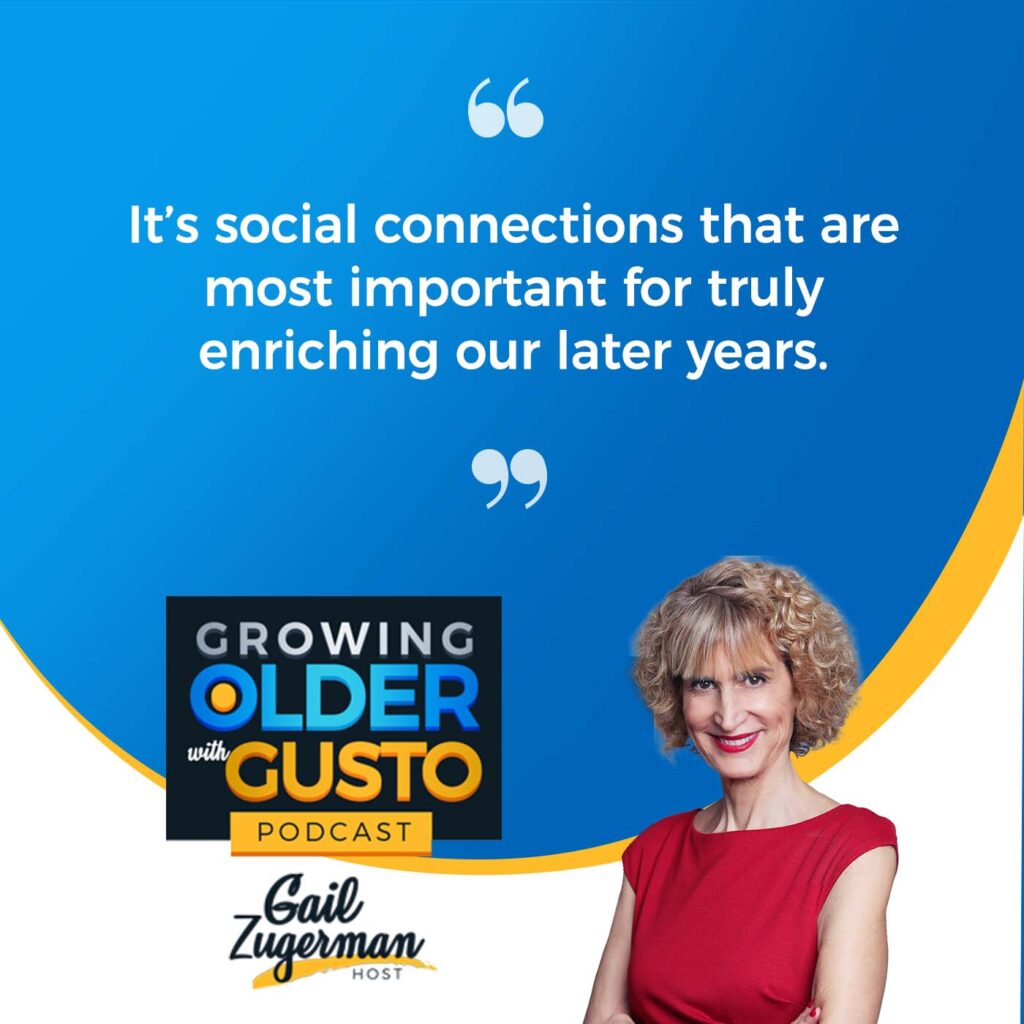
With this loneliness epidemic happening, it’s super important to remember that having friends and having a good support system and friends takes work, it’s not easy. Friends are not just going to come to you. You have to work to make that happen. Thirdly, and this is a little bit of a cliche, but there’s a reason for it. The people in the film saw life as the glass is half full rather than half empty. It was a lot about their positivity and their attitude. A lot of times in our lives we can’t control the things that happen around us, but what we can control is our attitude about how we deal with those things. Whether it’s reflecting back on things that have happened or dealing with things at the moment. A lot of it has to deal with our attitude of how we can handle the things that are coming our way that is a lot about resilience and positivity.
That comes up as a theme in your book also, which I noticed. The people that I’ve interviewed for the show who are examples of growing older in a positive objective way are people who do see the glasses half full and not half empty. It’s important and it’s hard for people who aren’t like that to change.
That’s true if you surround yourself with people that you want to be like, and when you’re around people that have that positive energy, that helps you come into that mindset. I’ll say that the tagline for the book, it’s Lives Well Lived — GENERATIONS: Resilience, Positivity, And Purpose At Every Age. The book is meant to help you. There are some ideas of how you can maybe have a little more of a sense of purpose, positivity, and resilience at every age in the book because I learned so much from all the people in the book. What are some things that you can do in your own life? One of the key things is to surround yourself with other people that are positive and like-minded. It’s amazing how that can help bring you up out of maybe some difficult times.
When you’re around people with that positive energy, it helps you come into that mindset.
Your work also includes themes about leaving a legacy of knowledge. We talked a little bit here about resilience and overcoming obstacles. Tell us more about leaving a legacy of knowledge. What does that mean?
When we reach a certain age, we want to be able to give back. We have learned a lot because we have lived a life and we have years of experience and wisdom. It’s nice to be able to feel like we can share that wisdom and knowledge with another generation so that it’s not lost. I think that’s part of leaving a legacy, is paying it forward and giving back. For example, I’ll tell you a little quickly about the new film that I’m working on called The Primetime Band, which is about older adults coming back to music later in life they’re part of a band that rehearses every Tuesday, and it’s a big 75 person band. Many of those people are also a part of something called The Music Van, which goes into classrooms and brings instruments.
Part of leaving a legacy is paying it forward and giving back.
It’s quite literally a van full of instruments. They go into third-grade classrooms and introduce young people to instruments. Many of them would never have the opportunity to touch an instrument and to see the joy and the excitement. I think that is part of paying that wisdom and that experience forward. It’s older people who come back to instruments later in life and then pay it forward to young people and open up and light somebody up around music that maybe would never have had that experience otherwise. That’s all part of that connection and part of what that legacy is, “How do we leave that legacy? How do we leave our stories and part our wisdom, to excite young people about things? How do we do that?” There are many creative ways to make that happen.
your book goes into that in detail. There are many wonderful vignettes from people that sky you’ve met and interviewed on what they’re doing. The one that struck me was the one about cycling. They went into the nursing home. They took the people out and then they found out that when they came back, everything was better. If they had dementia, they were clearer and their health was better. It was totally amazing.
This is called Cycling Without Age, and it started in Denmark. It’s a wonderful program. It’s spread throughout the world now, but it’s basically a bicycle and then there are two seats in the front. The older people who maybe can’t ride a bike anymore have the experience of that wind in their hair and that wonderful experience. they’re also engaged in a conversation with the person who’s pedaling them. They have this wonderful interchange of knowledge and wisdom in both directions, and they get this incredible experience that they wouldn’t be able to have otherwise.
Who do you see as the audience for your new book?
I think it’s a number of different people because I think the book is in some ways a guide, a self-help book in terms of people looking, if they’re looking for direction, they’re looking for ways that they can have a sense of purpose, resilience and positivity. I think it’s also a book for people who want to be more involved in connecting generations or want to live a life with more purpose and more connection. I see it as a very broad book. It’s not for a particular age group. I think young people can gain as much knowledge from reading the book as somebody that’s in their 50s, 60s, 70s, 80s and even 90s. It’s a book for everyone who wants to maybe have a moment where they take a pause, reflect on their life, and look at what they want to do moving forward.
I found in the book that one of the revelations through one of your interviews is that four-year-old kids have already developed these cultural stereotypes. Tell me how that happened.
I think a lot around ageism. I think a lot of that has to do with the media. We’re barraged by images and advertisements. I think that even by the time somebody’s four years old, they’ve already seen a lot of that. They have this inherent bias. I think it’s up to us as individuals to change that. It’s like anything else, it’s easy to have a stereotype or an ism about a group of people if you don’t know someone from that group.
That’s why for me connecting generations is important because I think it breaks down those barriers and those stereotypes of ageism in both directions. Let’s face it, we talk more about ageism directed at older adults, but there’s also ageism directed at young people. We live in a very age-segregated world. The more that we can connect generations, the better off we will all be. I think that those stereotypes that begin at the age of four will start disappearing.
New Films
Let’s talk about your two new films coming out. Let’s first talk about Mochitsuki.
Mochitsuki quite literally means making mochi. It’s a Japanese tradition that to bring in the new year, they make mochi a sign of hope, resilience and good luck for the new year. if you’ve never had mochi, it is simply rice that’s steamed and then pounded into a consistency that’s like bread dough. It’s very smooth. You don’t see any of the grains of the rice then it’s formed into mochi balls. You can eat them just raw like that or sometimes for the new year, they put them in a soup called ozoni, which is lovely. One of the things that I love about the Mochitsuki ceremony is that generations come together for the common good of making this food to bring good luck for the new year.
I think because I grew up in my grandmother’s kitchen, I love this idea of generations coming together around food. I think everyone that’s listening right now can probably think of something that they did in their life where generations came together for a purpose around food. For me ,it was making pasta and like on, if you were Italian, you know that on Christmas we have the seven seafood fishes that you have to eat.
Every religion is making matzo ball soup.
Although it’s about this particular Japanese-American tradition, well it’s now been passed on and Japanese-Americans do this as well, it’s more about tradition around food and generations coming together in particular. I like it because I always say the more personal, the more universal the message becomes. I got interested in it because one of the people in the Lives Well Live film, Susy Eto Bauman, and her family did the Mochitsuki and invited me to come. I saw it and I was hooked. I mean it is amazingly beautiful. My brother is married to a Japanese woman and has two kids. I have two Japanese-American nephews. It’s a way for me to understand a little bit more of their culture. It is a very personal story.
The more personal a message is, the more universal it becomes.
That’s a great bonding experience.
I have loved working on that film. The other one is the primetime band. I was a band geek when I was a kid. I played flute, clarinet and bassoon. I still play guitar and flute. I love this idea of people picking up a passion that they put away for many years. It hits upon everything that I have talked about in the lives of live film and the book, which is this sense of purpose. All these people come together to make music. When you are in a band like that, you are one of many that come together. I think that also speaks to the community.
They rehearse every Tuesday night. They know if somebody’s sick. They send get-well cards and food. There’s this sense of wonderful bonding and community, and then resilience and positivity. There are people in the band that may have Parkinson’s. It’s not easy for them to play, but they still continue to go. It’s good for them. There’s one woman in particular who plays a flute. She can’t hold it horizontally anymore because she had an injury to her shoulder. She found a way to have it so that her headstock goes down instead of out so she can hold it vertically and still continue to play the flute. I love the resilience that comes into play for the people in the band. I love the music band part of it where they go into third-grade classrooms. It is such a wonderful moment to be able to share that and see the joy on the kids’ faces and the older adults. When you give back, there is a sense of joy that you’re giving back. It’s palpable. It was such a wonderful experience.
Personal Reflections
You do all these things and you’re fluent in everything. You keep going and this third act. It’s incredibly inspiring to not only me but to our audience. What is your personal definition of a life well lived?
That is a very good question and thank you for turning the tables on me because this is usually what I ask people. I would say that my definition of a life well lived is to be kind. I take that from my grandmother who is always kind to everyone. it could be a kind word or act, but it’s when a doubt always be kind. That to me is a life well lived.
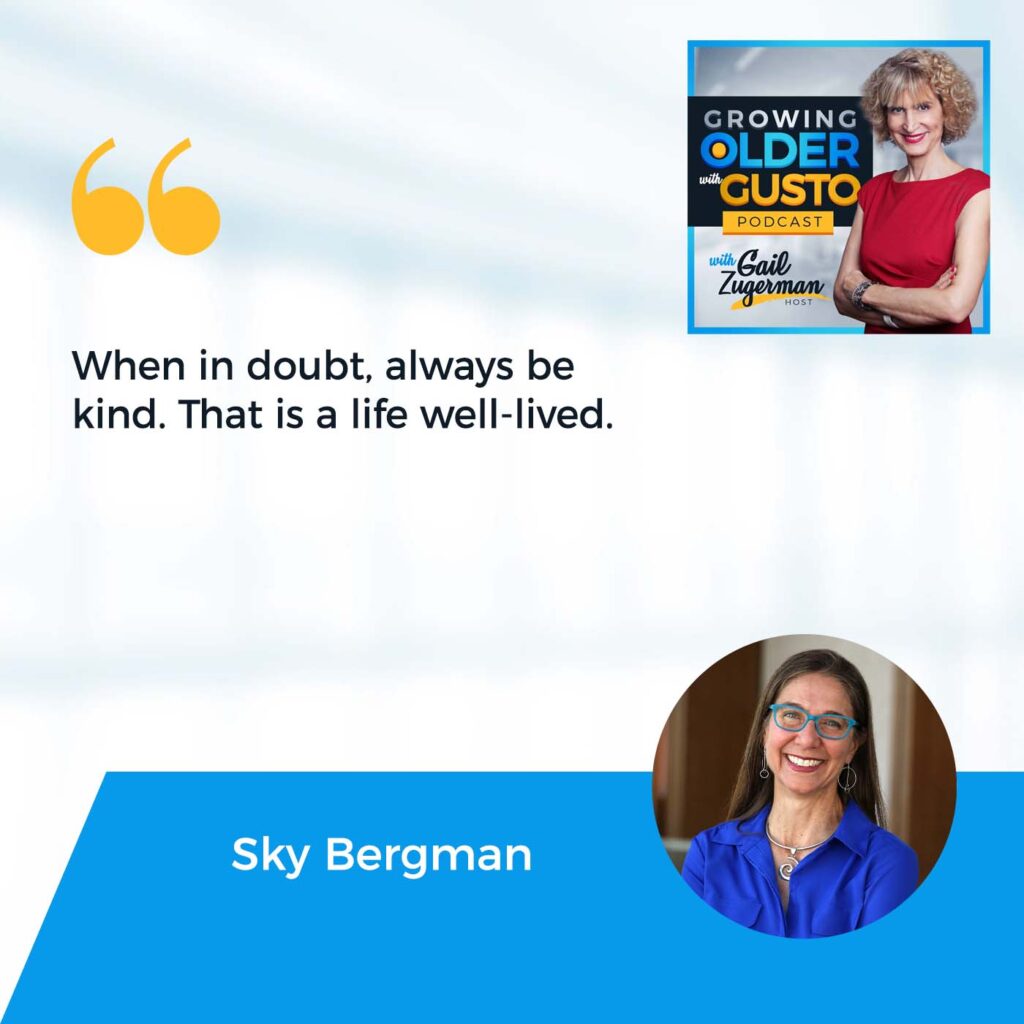
I wanted to read a quote from your book that moved me and caught my attention, “A candle doesn’t diminish its radiance when it ignites another candle.” Tell us, how does this weave into your philosophies on aging well and growing older? It struck me as I read your book like, “That’s so powerful.”
One of the things that I have always lived my life doing is giving back and giving to other people and knowing that it’s a sense of gratitude and paying it forward. I think a candle loses nothing by lighting another candle. We both burn much brighter as a result. I think that we can lift each other up. The aging process is also giving back and lighting another candle, lighting the next generation up like the music van does with these young kids. You literally see that. Literally like passing of the torch is something beautiful metaphor for me to think about lighting another candle and both burning brightly.
Do you think of the Olympics in Paris with the torch? Wasn’t that wonderful? I love that.
It was beautiful. There’s a reason that they pass the torch.
Future Endeavors
I love you to see the man at the end, 102, in the wheelchair. That was amazing. This is your third act and I don’t want to say fourth act, but what’s next for Sky Bergman?
Anything that I do is going to have an intergenerational component to it. Something, whether it’s film, books or whatever I work on will have that twist. I see that I enjoy doing filmmaking. I am thinking that I’m going to continue on with filmmaking and that’s become a real love of mine. It’s nice to be able to weave all the things that I enjoy doing, like music, storytelling, visuals, and this intergenerational component to be a wonderful filmmaker. That’s I think what’s next for me.
If people want to reach you or get your book or see your films, can you tell our readers a little bit about where they can do this?
The easiest place is to go to my main website, which is SkyBergmanProductions.com. There are links to everything that I’m working on. The book, Lives Well Lived film, with all the links to Amazon, iTunes, PBS, ways to watch the film, and all the other filmmaking projects that I’m doing. That’s the best way, and you can reach out. My email is there as well.
It’s been nice talking to you, Sky. I have always enjoyed your books and I will definitely look out for your films. Your film will be in the Santa Barbara Theater or something, you start out there. Tell us a little bit.
The Lives Well Lived started out the Santa Barbara International Film Festival a number of years ago, and I’m hoping that the primetime band film will also start out the Santa Barbara International Film Festival in February 2025. The Mochitsuki film is going to be on PBS in May 2025 for Asian American Pacific Islander Month.
I’m going to try to get out to Santa Barbara and see it when it comes out. For the readers, thank you for reading. Remember to stay curious and stay connected. Thanks, Sky.
Important Links
About Sky Bergman
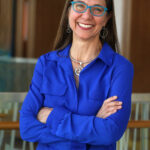 Sky Bergman, professor emeritus of Photography and Video at Cal Poly, at San Luis Obispo. Sky’s 3rd Act after her 30 year teaching career includes hanging artwork in prestigious museum collections and her commercial work has appeared in the Smithsonian magazine. Her most recent passions involve creating films and projects that inspire intergenerational connections which emphasize the power of sharing stories.
Sky Bergman, professor emeritus of Photography and Video at Cal Poly, at San Luis Obispo. Sky’s 3rd Act after her 30 year teaching career includes hanging artwork in prestigious museum collections and her commercial work has appeared in the Smithsonian magazine. Her most recent passions involve creating films and projects that inspire intergenerational connections which emphasize the power of sharing stories.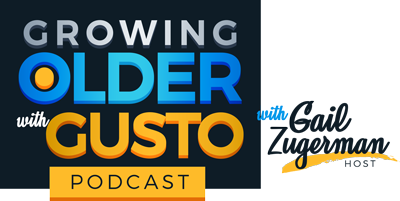

0 Comments